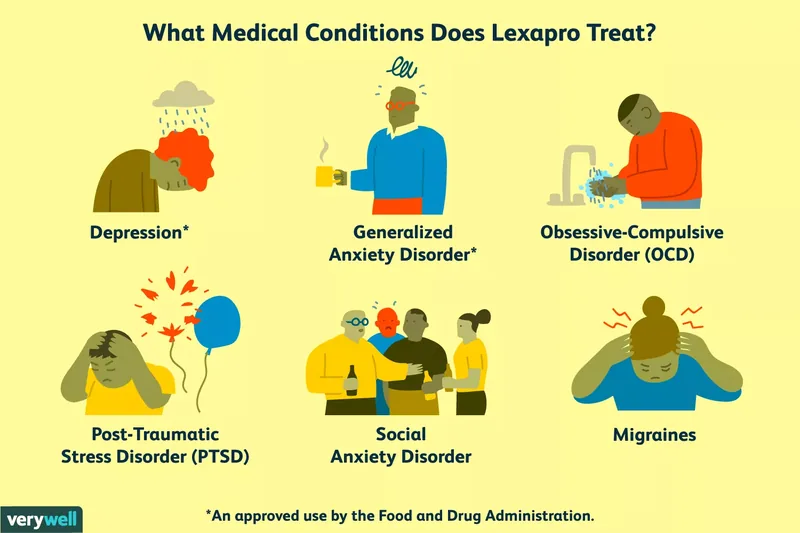A true friendship feels like an unbreakable alliance, a bond where mutual support and celebration thrive. But what happens when that camaraderie is subtly undermined by unspoken resentment? It can be deeply unsettling to suspect your closest confidante harbors covert envy. If you’re wondering, "Is my friend secretly jealous of me?" you're not alone. This often-hidden emotion can erode trust and create an uncomfortable dynamic, impacting your well-being.
Navigating the complexities of friendship requires open communication and empathy, but sometimes, the signs of a jealous friend are too subtle to ignore. Recognizing these indicators early can help you understand the true nature of your relationships and decide how to protect your emotional health. In an increasingly interconnected world where social media often amplifies comparisons, understanding this dynamic is more crucial than ever in 2025.
Understanding the Roots of Friendship Jealousy
Jealousy is a fundamental human emotion, a complex mix of envy, insecurity, and fear of loss. It's almost impossible to go through life without experiencing it at some point, longing for something another person possesses. While securely attached individuals may experience it less frequently, it can affect anyone, often stemming from personal feelings of inadequacy. As therapist Afton Turner, LPCA, notes, "jealous behaviors may indicate underlying feelings of inadequacy."
This covert envy can manifest in response to various aspects of your life. Your friend might secretly resent your successful career, recent promotion, or even the exciting vacations you take. They could feel envious of your stable relationship, thriving dating life, or how much money you earn. Even seemingly trivial things like your appearance, unique style, or other strong friendships can trigger feelings of unspoken jealousy. The rise of curated online personas on social media in 2025 only exacerbates these feelings, making it easier for friends to compare their lives to highlight reels.
It's crucial to remember that a friend secretly jealous of you often reflects their internal struggles rather than any fault of your own. Their feelings of inadequacy are projected, unfortunately making you the recipient of their negative emotions. Recognizing this can help you approach the situation with more clarity and less self-blame, laying the groundwork for addressing the issue effectively. Understanding these underlying causes is the first step toward managing the situation without letting it poison your bond.
Decoding Behavioral Cues from a Secretly Jealous Friend
When a friend secretly jealous of your achievements, their envy often surfaces through specific behavioral patterns. These actions are typically more noticeable when positive things happen in your life, as success tends to highlight their perceived shortcomings. Pay close attention to how they react during these moments, as their non-verbal cues can speak volumes about their true feelings. A friend who truly supports you will celebrate your wins wholeheartedly.
One common indicator, as highlighted by Turner, is disengagement when you share good news. Instead of expressing genuine excitement, they might quickly change the subject, offer a lukewarm response, or even seem distracted. Another significant sign is exclusion. This could range from not inviting you to social gatherings to intentionally leaving you out of group chats or plans. For instance, if you constantly hear about events your friend attended with mutual acquaintances, but you were never invited, it might be a subtle form of ostracization driven by covert jealousy. They might also subtly "one-up" your achievements, immediately mentioning a greater success of their own after you share good news.
A new example of a behavioral cue might be a friend who consistently downplays your accomplishments. When you get a promotion, they might remark, "Oh, that's nice, but isn't the workload insane now?" or "I heard that department is really struggling." This isn't constructive criticism; it's a deliberate attempt to diminish your joy and success. Observing these consistent patterns, especially after you've shared something positive, can be a strong indicator of a friend secretly jealous of your progress.
Unpacking Communication Red Flags in Covert Envy
Communication patterns are a powerful window into a friend’s true feelings, especially when dealing with hidden resentment. A jealous friend often exhibits erratic or subtly hostile conversational tendencies. Psychologist Dr. Patrice Le Goy, PhD, MBA, LMFT, points out that they might make themselves scarce when you're thriving, struggling to genuinely be happy for you. Conversely, they may become overly attentive and present when you're facing difficulties, perhaps finding a perverse comfort in your struggles. This inconsistent presence is a significant red flag.
Turner further elaborates on these communication quirks, noting that they can manifest as sarcasm or subtle digs disguised as jokes. These comments often have a sting, making you feel uncomfortable or questioning your achievements. Excessive comparison, where they constantly measure their life against yours, is another tell-tale sign. They might ignore or minimize your feelings and experiences, dismissing your concerns or accomplishments with phrases like, "It's not that big of a deal," or "You're overreacting." They may also try to make you feel guilty for your successes, implying you're showing off or being insensitive. For example, if you share exciting travel plans, a jealous friend might respond, "Must be nice to have so much disposable income, unlike me."
An additional red flag is when a friend secretly jealous attempts to isolate you. Le Goy explains they might become overbearing, finding fault with your other friends and actively discouraging you from spending time with them. They might say, "Are you really going out with them again? They're so negative," or "I just don't think they're good for you." This manipulative tactic aims to monopolize your attention and reduce your support network. This behavior is a clear sign of deep-seated unspoken jealousy and a desire to control your social sphere.
Navigating Social Dynamics with a Jealous Companion
In social settings, the covert envy of a friend secretly jealous can become even more apparent, sometimes dramatically so. Whether they make a scene or maintain a passive-aggressive demeanor, their focus tends to be negative, even when you're experiencing positive moments. This can make social interactions feel like a minefield, where you constantly guard your happiness. The energy they bring to group settings often feels draining and critical, rather than uplifting.
Le Goy highlights that a jealous friend may actively avoid focusing on your positive experiences. Instead, they might steer conversations towards difficulties or challenges you're having, or even bring up past struggles you've overcome. For instance, if you're celebrating a new job, they might interject with, "Remember how stressed you were during your last job search?" or "Are you sure this new role won't lead to burnout like before?" This behavior subtly undermines your current joy and plants seeds of doubt. They may also subtly spread rumors or hint at your flaws to others, trying to diminish your standing in the group.
Furthermore, Le Goy observes that a jealous friend often seems to search for negativity when you appear happy. They might find something critical to say about your new relationship, your new apartment, or any other source of excitement for you. For example, if you're thrilled about a new hobby, they might remark, "That sounds expensive," or "Are you sure you have time for that?" This constant negativity can put you on the defensive, making you feel the need to justify your happiness. This behavior is a clear manifestation of their hidden resentment, creating an uncomfortable atmosphere for everyone involved.
The Psychological Impact of Enduring a Jealous Friendship
Living with a friend secretly jealous can take a significant toll on your mental and emotional well-being. Their negativity isn't confined to them; it often seeps into your self-perception, making you doubt your successes and even yourself. As Turner aptly states, "Personal insecurities can be amplified by jealousy." This dynamic can magnify self-doubt, particularly in areas like your career, appearance, or relationships, where their envy is most potent. You might find yourself downplaying your achievements to avoid triggering their reactions, which is a form of self-sabotage.
The constant need to navigate a jealous friend's emotional landscape can be exhausting. It creates an unbalanced relationship where you might feel responsible for managing their feelings, rather than enjoying mutual support. This emotional burden can lead to increased stress, anxiety, and even feelings of guilt for simply experiencing good things in your life. The friendship, intended to be a source of joy, instead becomes a source of dread. (Harvard, 2024) This emotional drain can affect other areas of your life, impacting your overall mood and energy.
If left unaddressed, this covert jealousy can severely damage the friendship, potentially driving people apart. Le Goy warns that it can "stall a friendship or completely drive people apart." Turner adds that "jealousy can often cause communication problems, decrease trust, increase resentment, and create an unbalanced relationship." This ultimately leads to emotional distance, eroding the very foundation of the friendship. Recognizing this profound psychological impact is crucial for deciding whether to salvage the relationship or prioritize your own well-being.
Constructive Dialogue: Addressing the Jealousy Head-On
If you've identified the signs of a friend secretly jealous and genuinely wish to preserve the friendship, addressing the issue directly is essential. Before initiating this conversation, however, take a moment for honest self-reflection. Le Goy advises, "Make sure it is a friendship that you really want to save. Maybe the friendship has run its course and it is too toxic to continue." Not all friendships are meant to last, and some may have become too detrimental to your well-being.
If you decide the friendship is worth the effort, approach the conversation calmly and compassionately, avoiding accusatory language. Turner recommends using "I" statements to express your feelings and observations without placing blame. For example, instead of saying, "You're always so negative when I share good news," try, "I feel hurt when I share my successes and the conversation quickly shifts to my challenges. I want us to both feel comfortable celebrating each other." This approach opens a dialogue rather than creating conflict, fostering a space for understanding.
It's vital to clearly articulate your expectations for the friendship moving forward. Le Goy emphasizes defining "how you want to feel about them and how you want them to make you feel (e.g., cared for, supported)." This isn't about demanding they become a "yes person" who never offers constructive criticism. Instead, it's about establishing a boundary that requires your friends to be kind and genuinely happy for you when things are going well. You might also offer genuine reassurance, demonstrating that your success doesn't diminish their worth. For instance, if they're envious of your relationship, you could offer to help them meet new people or share your own relationship challenges to show that life isn't always picture-perfect. This compassionate honesty can sometimes help a jealous friend reframe their perspective.
Setting Boundaries and Knowing When to Disengage
Despite your best efforts to address the hidden resentment of a friend secretly jealous, there might come a point where the friendship is no longer sustainable or healthy. If your friend denies the problem, refuses to acknowledge their behavior, or fails to make genuine changes after your honest conversation, it's a strong indicator that the friendship may need to end. Le Goy states, "If your friend does not think there is a problem or they don’t make changes after being confronted, you should consider ending the friendship." Your well-being is paramount, and a friendship that consistently drains you is not serving its purpose.
Recognize the pitfalls of trying to maintain a toxic friendship. One major red flag, according to Turner, is when you find yourself actively making decisions to avoid triggering their jealousy. This could involve holding back on sharing exciting news, downplaying your achievements, or even keeping certain friends or experiences separate from them. This self-censorship is a significant sign that the friendship has become a burden, forcing you to diminish your own life to appease another. This constant emotional labor is unsustainable and unhealthy.
Ultimately, protecting your mental and emotional health must be your priority. If the covert envy persists and continues to negatively impact your self-esteem, trust, or overall happiness, it's time to create distance. This doesn't always mean a dramatic confrontation; sometimes, a gradual disengagement is healthier. You deserve friendships that are sources of joy, support, and mutual growth, not constant anxiety or self-doubt. Recognizing when a friendship has run its course, even if it's painful, is an act of self-care.












